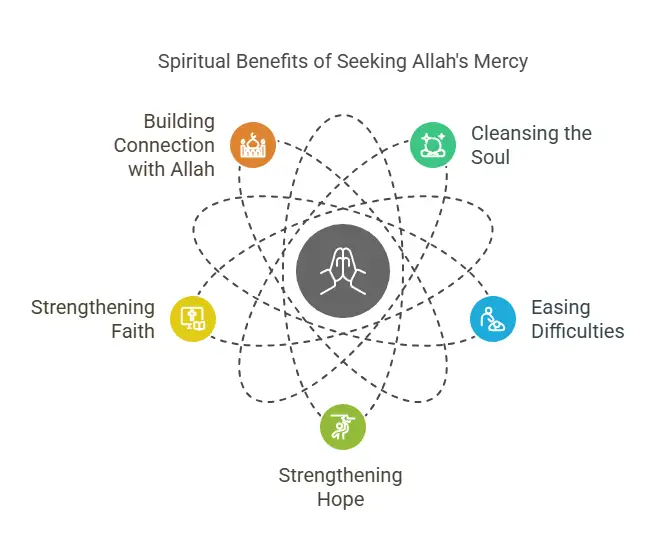
Ramadan, the holy month of fasting, prayer, and reflection, is divided into three Ashras, each with its own unique significance and dua for first ashra.
The first Ashra, spanning the initial ten days, is a time to seek Allah’s mercy and forgiveness.
This period is an opportunity to deepen your connection with Allah, reflect on your actions, and seek His boundless mercy.
In this comprehensive guide, we will explore the importance of the first Ashra, the specific dua associated with it, and how you can make the most of this blessed time.
Whether you are new to Ramadan or a seasoned observer, this article will provide you with the tools and insights to enhance your spiritual journey during the first Ashra.
The Specific Dua for First Ashra
The first Ashra (ten days) of Ramadan is a time dedicated to seeking Allah’s mercy.
The specific dua for this period is a powerful supplication that encapsulates the essence of this spiritual phase.
It is a heartfelt plea for Allah’s mercy, forgiveness, and blessings. Reciting this dua for first ashra with sincerity and understanding can help you align your intentions and actions with the spirit of Ramadan.
Arabic Text and Transliteration
The dua for the first Ashra is as follows:
Arabic Text:
رَبِّ اغْفِرْ وَارْحَمْ وَأَنْتَ خَيْرُ الرَّاحِمِينَ
Transliteration:
Rabbi ighfir warham wa anta khayrur raahimeen.
English Translation and Explanation
English Translation:
“O my Lord, forgive and have mercy, and You are the best of the merciful.”
Explanation:
This dua is a concise yet profound supplication that seeks Allah’s forgiveness and mercy. Let’s break it down:
- رَبِّ (Rabbi): This means “O my Lord.” It is a term of endearment and humility, acknowledging Allah as the Creator and Sustainer of all things.
- اغْفِرْ (ighfir): This translates to “forgive.” It is a plea for Allah to pardon our sins and shortcomings, both major and minor.
- وَارْحَمْ (warham): This means “and have mercy.” It is a request for Allah’s compassion and kindness, which are essential for spiritual growth and well-being.
- وَأَنْتَ خَيْرُ الرَّاحِمِينَ (wa anta khayrur raahimeen): This phrase means “and You are the best of the merciful.” It acknowledges that Allah’s mercy is unparalleled and that He is the ultimate source of all mercy.
Why This Dua is Significant:
- Seeking Forgiveness: The first Ashra is a time to reflect on our actions and seek Allah’s forgiveness. This dua helps us express remorse for our sins and ask for His pardon.
- Requesting Mercy: Mercy is a central theme of the first Ashra. By asking for Allah’s mercy, we acknowledge our dependence on Him and His infinite compassion.
- Acknowledging Allah’s Attributes: The dua ends by affirming that Allah is the best of those who show mercy. This reinforces our belief in His supreme qualities and strengthens our connection with Him.
This dua for first ashra is a beautiful reminder of the importance of seeking Allah’s mercy and forgiveness during the first Ashra of Ramadan.
By reciting it with sincerity and understanding, you can make the most of this blessed time and set a strong foundation for the rest of the month.
Seeking Allah’s Mercy
The first Ashra of Ramadan is a time dedicated to seeking Allah’s mercy, and the dua for this period is a powerful tool in achieving this goal.
Mercy is one of Allah’s most emphasized attributes in the Quran, and during Ramadan, His mercy is even more accessible.
By reciting the dua, “رَبِّ اغْفِرْ وَارْحَمْ وَأَنْتَ خَيْرُ الرَّاحِمِينَ” (O my Lord, forgive and have mercy, and You are the best of the merciful), you are directly asking Allah to envelop you in His compassion and forgiveness.
Why Seeking Mercy is Important:
- Cleansing the Soul: Mercy from Allah helps cleanse your soul from the sins and mistakes you’ve accumulated over time. It’s a spiritual reset that allows you to start anew.
- Easing Difficulties: Life’s challenges can feel overwhelming, but Allah’s mercy can provide relief and ease. By seeking His mercy, you invite His assistance in overcoming hardships.
- Strengthening Hope: Knowing that Allah is the Most Merciful instills hope and optimism, even in the darkest times. This hope is a source of inner peace and resilience.
Strengthening Faith and Patience
Reciting the dua for first ashra not only seeks Allah’s mercy but also strengthens your faith (Iman) and patience (Sabr). Faith is the foundation of a Muslim’s life, and patience is the key to enduring life’s trials. This dua for first ashra serves as a reminder of Allah’s greatness and our reliance on Him.
How It Strengthens Faith:
- Acknowledging Allah’s Power: By asking for forgiveness and mercy, you acknowledge that only Allah has the power to grant these blessings. This reinforces your belief in His omnipotence.
- Trusting in Allah’s Plan: The act of making dua itself is an expression of trust in Allah’s wisdom and timing. It teaches you to rely on Him, even when things seem uncertain.
Building a Closer Connection with Allah
One of the most profound spiritual benefits of reciting the first Ashra dua is the opportunity to build a closer connection with Allah. This dua is a direct conversation with your Creator, allowing you to express your needs, fears, and hopes.
How It Deepens Your Connection:
- Personal Supplication: Unlike standardized prayers, dua is a personal and intimate form of worship. It allows you to speak to Allah in your own words, fostering a deeper bond.
- Increased Awareness of Allah’s Presence: Regularly reciting this dua keeps you mindful of Allah’s presence in your life. It reminds you that He is always near, ready to listen and respond.
- Gratitude and Humility: By asking for mercy and forgiveness, you acknowledge your imperfections and express gratitude for Allah’s endless compassion. This humility strengthens your relationship with Him.
Conclusion
The first Ashra of Ramadan is a precious time to seek Allah’s mercy and forgiveness.
By understanding the significance of this period, reciting the specific dua for first ashra with sincerity, and avoiding common pitfalls, you can make the most of this blessed time.
Remember, Ramadan is not just about physical fasting; it is a holistic spiritual journey that encompasses prayer, reflection, and supplication.
As you embark on this journey, may you find peace, mercy, and spiritual growth. Share your experiences and insights with others, and encourage them to join you in seeking Allah’s mercy during this holy month.
FAQs
- What is the best time to recite the dua for the first Ashra?
- The best time to recite the dua is during your daily prayers, especially after Fajr and before Iftar.
- Can I recite the dua in my own language?
- Yes, you can recite the dua in your own language if you are more comfortable, but it is also beneficial to learn the Arabic version.
- How can I stay consistent with my dua throughout the Ashra?
- Set reminders, create a dua routine, and incorporate the dua into your daily prayers to stay consistent.
- What if I forget to recite the dua on some days?
- If you forget, simply continue reciting the dua when you remember. Allah is Most Merciful and understands our human limitations.
- Are there any specific deeds recommended during the first Ashra?
- Yes, engaging in additional acts of worship such as reading the Quran, giving charity, and performing night prayers (Tahajjud) are highly recommended.






